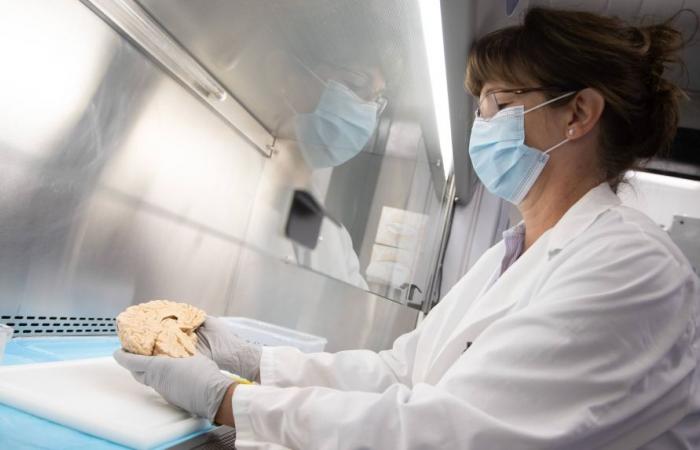Nevertheless, they continue to move forward, all in the name of science.
This text is a translation of an article from CTV News.
“The brain is a fascinating organ,” says Dr. Viviane Poupon, President and CEO of Brain Canada. I think we don’t explain enough to the public the complexity of how it works. There are many connections between neurons and the different cells that we have.
Brain Canada is a non-profit organization established in 1998, then called NeuroScience Canada Partnership and Foundation.
“Our goal is to support brain research, better understand how the brain functions in health and disease, and support the entire Canadian ecosystem. It’s really, really important that we make groundbreaking discoveries about our brains. So this is our main mission,” said Dr. Poupon.
According to her, the goal is simple: to allow Canadians to live with as healthy a brain as possible, for as long as possible.
“We must also try to find common points, because it is sometimes the same mechanism which is at the origin of different neurodegenerative diseases. We need to understand these drivers because they can have implications in one disease or another,” she explains.
An important part of science, Poupon explains, is understanding how the brain interacts with the rest of the world.
“That’s why we support all kinds of brain research. We have a holistic approach to the brain. We look at it as a whole, she said. It’s not just about what happens between our ears in isolation; our brain is constantly reacting to our internal environment and our external environment.”
Poupon notes that research is looking at everything from how cells interact to memory formation to how these mechanisms can break down over time.
“Why does a normal, healthy brain suddenly take a different trajectory and start to develop disease?”
One of Brain Canada’s main collaborators is the brain bank at the Douglas Research Center in Montreal.
This is a collection of 4,000 brains donated by people, many of whom suffered from various neurodegenerative diseases such as Parkinson’s disease, Alzheimer’s disease, dementia and amyotrophic lateral sclerosis.
“The brain remains a poorly understood organ of the human body,” explains Dr. Gustavo Turecki, scientific director of the Douglas Research Center. We still understand very little about how the brain works: where in the brain certain processes are regulated, how our emotions and behaviors are regulated, and what happens when things don’t work well.
The bank also analyzes the brains of people suffering from mental illnesses such as schizophrenia, depression, bipolar disorder, etc.
One of the main challenges of studying the brain?
“The only way to truly understand is to have access to brain tissue. Unfortunately, it is not possible to collect brain tissue from living subjects,” explains Turecki.
He notes that age, gender, ethnicity and even environment can affect people’s brains differently.
“Different labs and different researchers asking different questions have found different things,” he explains. There are so many things that have been impossible to find until now… without the brain tissue we have in the bank, it would have been impossible.
He admits that obtaining consent to analyze a person’s brain is a “delicate” issue.
“We need consent immediately after death because the brain must be removed within 24 or 48 hours at most. Even though they are going through a very difficult experience, [ils] give the brain that can help other families avoid what they are going through… We help to understand why someone died,” he explains
Poupon adds that Brain Canada hopes the research will eventually lead to better diagnostics and the identification of biomarkers to create more promising treatments for people living with the spectrum of brain disorders.
“This is a collective wealth made available to researchers in Canada and around the world to answer questions about what I discover, what I observe in my laboratory, in a cell or in an animal model: Is this really what happened to a human being?”
Looking to the future, Poupon says she is “very excited” to see what researchers discover over the next decade.







